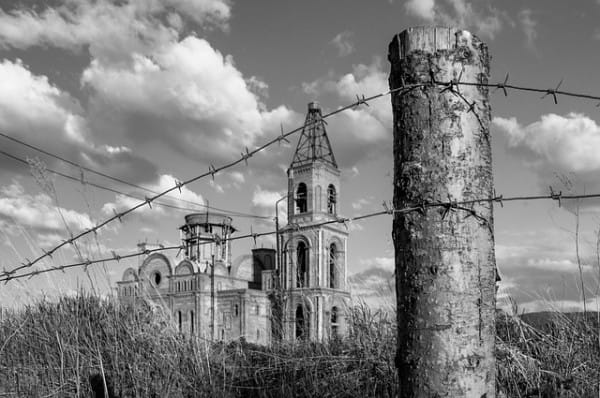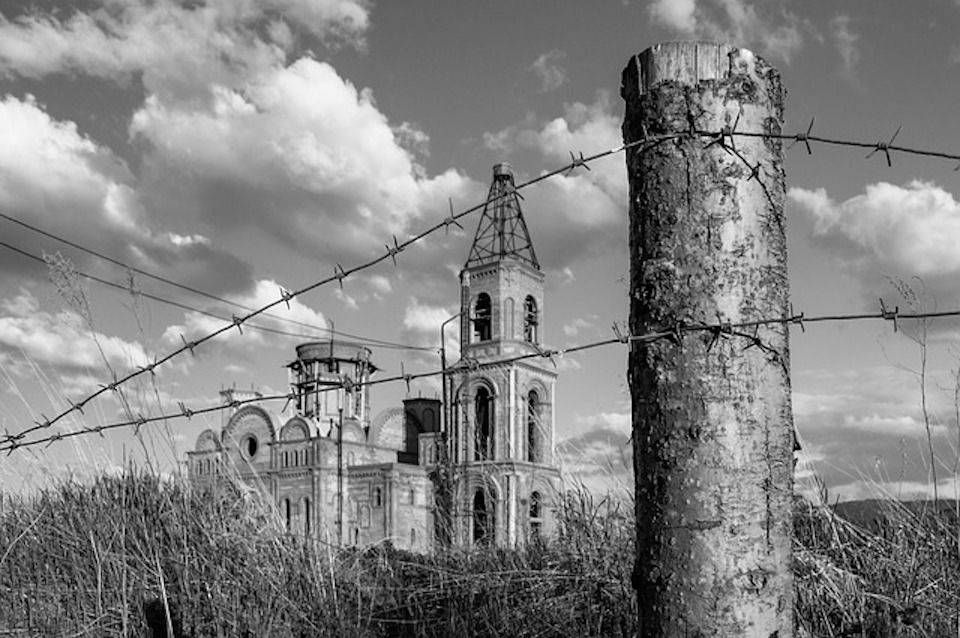Once one abandons the concept that the security praxis of any state is ever politically ‘neutral’, the manner in which different states instrumentalize security policy in the generation of national narratives becomes an important additional insight into understanding the course and development of international relations. For at least the past two years, the policy of the Putin administration in the Russian Federation has been to emphasize the ‘civilizational differences’ between Europe and Eurasia. This builds upon a pre-existing concept, espoused during President Putin’s first term, that Russia was culturally and economically part of Europe, but politically and institutionally distinct. Since at least 2012, this position has metastasised to one that now in fact also emphasises the cultural differences between Russia and Europe, and the fact that Russia has ‘other options’ economically as well-most notably the proposed ‘Eurasian Union’.
One can of course identify key political turning points that have altered the shape and nature of this Russian narrative-disappointment over the 1999 Kosovan conflict, perceptions of the ‘colour revolutions’ that were attempted or occurred in states immediately adjacent to Russia in 2003-05, resentment at NATO’s expansion in Eastern Europe, the 2008 conflict triggered by Georgian attacks on South Ossetia and killing of Russian peacekeepers, and the failure to hold constructive discussions over a new European security architecture which was initiated by President Medvedev in 2008-09. Nonetheless another core, but less often-noticed, aspect of this shifting debate has been Russia’s increasingly assertive stance on the global drug policy debate, in which Russia has become an increasingly vocal critic of both Western decadence towards the drug issue in general, and America’s abnegation of its presumed responsibilities to seriously tackle Afghan opium production in particular. In 2013 this trend came to a head when President Putin used the venue of the Valdai discussion club to remark that:
‘It is evident that it is impossible to move forward without spiritual, cultural and national self-determination. […] We can see how many of the Euro-Atlantic countries are actually rejecting their roots, including the Christian values that constitute the basis of Western civilisation. They are denying moral principles and all traditional identities: national, cultural, religious and even sexual. They are implementing policies that equate large families with same-sex partnerships, belief in God with belief in Satan. And people are aggressively trying to export this model all over the world. I am convinced that this opens a direct path to degradation and primitivism, resulting in a profound demographic and moral crisis.’ [1]

President Putin’s adoption of religion as the new core ideology of the Russian state clearly expresses both the ongoing search for a unifying national narrative since the death of communism and, to some degree, the ‘Chechenization’ of Russian politics. Putin’s own public embrace of orthodoxy as a leading legitimizing institution of statehood was preceded by several years by Chechen President Ramzan Kadyrov’s own fervent embrace of Islam as a legitimizing discourse for the Chechen republic.[2] The adoption of such an ideology carries with it of course as many pitfalls as benefits, as the alleged recent murder of Russian opposition leader Boris Nemtsov by an associate of Ramzan Kadyrov — the assassin being a devout Muslim allegedly offended by Nemtsov’s liberal sensibilities — underlines. Nonetheless it has also played a key aspect in Russia’s growing role in the global drugs debate on the road towards UNGASS in 2016, a debate in which Russia has become increasingly openly alarmed by what it perceives as the threat of unthought-through and excessive liberal reforms in the treatment of the global drug issue. The response of Viktor Ivanov, head of the FSKN, Russia’s official drug law enforcement agency, to the 2011 report by the Global Commission on Drug Policy advocating drug policy reform, was to emphasise that the commission itself was a non-official body, and one which was also part of a global PR campaign to popularise narcotics.[3]
Russia’s continued emphasis on abstinence as the ultimate objective of drug policy and her growing hostility to Western advocacy of harm-reduction measures in terms of managing the drug abuse issue has, in recent years, accordingly also been paralleled by a growing search for indigenous solutions to the drug abuse crisis within the Russian Federation itself. In 2011, the FSKN came forward with its own proposals for domestic ‘rehabilitation centres’ for treating drug addiction within the Russian Federation, institutions which are seen as an increasingly essential replacement for the now-lost Soviet model of special work camps (LTPs) for drug and alcohol addiction. However Russia’s model of drug control has not merely been confined to domestic policy, but has become a tool in foreign policy, whether in offering greater economic assistance to the Afghan government, undertaking tours of Latin America to drum up support for the Russian position on drug policy at the UN level, or closing down all methadone clinics in the Crimea immediately after the annexation of the Crimea to the Russian Federation. In seeking to assume the moral high ground on the drug control issue, Russia is also explicitly courting states which feel equally tired of being lectured to by the West—perhaps most notably amongst them, Hungary and Turkey.
Russia’s new voice on global drug policy issues therefore reflects both general disagreement with any liberalization of the current drug control regime, and one facet of a wider Russian security narrative that seeks to reposition Russia as a distinct pole of civilizational values in a multipolar world. The devotion by the Russian state of increasing quantities of resources to its own role in this classic ‘soft power’ debate reflects a growing pattern of hybrid warfare that appears to be being pursued by all states with increasing frequency, whether in terms of sponsoring civil society movements of providing armaments by the back door to foreign insurgents. At the global level, Russia’s security praxis on the drug issue reflects the fact that the global drug debate is about to become much more complicated.
Acknowledgements
Photo credit : http://pixabay.com/en/church-sky-siberia-russia-temple-370241/
References
http://rt.com/politics/official-word/putin-valdai-national-idea-142/ ↩︎
On this, see the collection: R. B. Ware (ed.), The Fire Below: How the Caucasus Shaped Russia. New York: Bloomsbury, 2013. ↩︎
